Al-Ghazali On Conduct In Travel
By: Abu Hamid Al-Ghazali
-
Rs 809.10
- Rs 899.00
- 10%
You save Rs 89.90.
Due to constant currency fluctuation, prices are subject to change with or without notice.
Al-Ghazali on Conduct in Travel is the seventeenth chapter of the Revival of the Religious Sciences (Ihya ulum al-din), which is widely regarded as the greatest work of Muslim spirituality. This volume falls in the section dealing with society and the norms of daily life. In it Ghazali explains the reasons for travel-in quest for knowledge or one s living, for the sake of worship including performing the pilgrimage, flight from what causes confusion in religion, and flight from harm; and the advantages gained from travel the disciplining of the soul through exposure to the rigours and strains of travel, and the acquisition of virtue and self-knowledge. On the practical side, Ghazali lists seven forms of conduct in travel, including how to prepare for a journey, what prayers to recite, what to do on the way and how to approach the return home. The final chapter of Conduct in Travel is dedicated to explanations of the religious concessions (rukhas) that travellers are granted in the like of the shortening and combining of prayers, the breaking of the fast, and how and when they can be applied. Finally, Ghazalt explains in detail how to learn to establish the direction of the qibla and the proper times for the daily prayers. As in all his writings, Ghazali bases his arguments in Conduct in Travel on the Qur an, the example of the Prophet and the saying of scholars and Sufis. He illustrates how an outward activity such as travel can encourage numerous virtues that are themselves necessary for the remainder of the spiritual life. This volume also includes a translation of Imam Ghazali s own Introduction to the Revival of the Religious Sciences, which gives the reasons that caused him to write the work, the structure of the whole of the Revival and which places each of the chapters in the context of the others.
Al-Ghazali on Conduct in Travel is the seventeenth chapter of the Revival of the Religious Sciences (Ihya ulum al-din), which is widely regarded as the greatest work of Muslim spirituality. This volume falls in the section dealing with society and the norms of daily life. In it Ghazali explains the reasons for travel-in quest for knowledge or one s living, for the sake of worship including performing the pilgrimage, flight from what causes confusion in religion, and flight from harm; and the advantages gained from travel the disciplining of the soul through exposure to the rigours and strains of travel, and the acquisition of virtue and self-knowledge. On the practical side, Ghazali lists seven forms of conduct in travel, including how to prepare for a journey, what prayers to recite, what to do on the way and how to approach the return home. The final chapter of Conduct in Travel is dedicated to explanations of the religious concessions (rukhas) that travellers are granted in the like of the shortening and combining of prayers, the breaking of the fast, and how and when they can be applied. Finally, Ghazalt explains in detail how to learn to establish the direction of the qibla and the proper times for the daily prayers. As in all his writings, Ghazali bases his arguments in Conduct in Travel on the Qur an, the example of the Prophet and the saying of scholars and Sufis. He illustrates how an outward activity such as travel can encourage numerous virtues that are themselves necessary for the remainder of the spiritual life. This volume also includes a translation of Imam Ghazali s own Introduction to the Revival of the Religious Sciences, which gives the reasons that caused him to write the work, the structure of the whole of the Revival and which places each of the chapters in the context of the others.
Al-Ghazali on Vigilance and Self-examination: Book XXXVIII of the Revival of the Religious Sciences
By: Abu Hamid Al-Ghazali
Rs 3,735.75 Rs 4,395.00 Ex Tax :Rs 3,735.75
Al-Ghazali Invocations & Supplications
By: Abu Hamid Al-Ghazali
Rs 809.10 Rs 899.00 Ex Tax :Rs 809.10
Al-Ghazali Love, Longing Intimacy And Contentment
By: Abu Hamid Al-Ghazali
Rs 989.10 Rs 1,099.00 Ex Tax :Rs 989.10
Al-Ghazali On Condemnation Of Pride And Self-Admiration
By: Abu Hamid Al-Ghazali
Rs 809.10 Rs 899.00 Ex Tax :Rs 809.10
Al-Ghazali On Disciplining The Soul: Breaking The Two Desires
By: Abu Hamid Al-Ghazali
Rs 1,259.10 Rs 1,399.00 Ex Tax :Rs 1,259.10
Al-Ghazali On Intention Sincerity And Truthfulness
By: Abu Hamid Al-Ghazali
Rs 719.10 Rs 799.00 Ex Tax :Rs 719.10
Al-Ghazali On Patience And Thankfulness
By: Abu Hamid Al-Ghazali
Rs 1,169.10 Rs 1,299.00 Ex Tax :Rs 1,169.10
Zubin Mehta: A Musical Journey (An Authorized Biography)
By: VOID - Bakhtiar K. Dadabhoy
Rs 892.50 Rs 1,050.00 Ex Tax :Rs 892.50
Al-Ghazali Invocations & Supplications
By: Abu Hamid Al-Ghazali
Rs 809.10 Rs 899.00 Ex Tax :Rs 809.10
Al-Ghazali Love, Longing Intimacy And Contentment
By: Abu Hamid Al-Ghazali
Rs 989.10 Rs 1,099.00 Ex Tax :Rs 989.10
Al-Ghazali On Condemnation Of Pride And Self-Admiration
By: Abu Hamid Al-Ghazali
Rs 809.10 Rs 899.00 Ex Tax :Rs 809.10
The Origins of Political Order From Prehuman Times to the French RevolutioN
By: Francis Fukuyama
Rs 4,045.50 Rs 4,495.00 Ex Tax :Rs 4,045.50
Al-Ghazali Invocations & Supplications
By: Abu Hamid Al-Ghazali
Rs 809.10 Rs 899.00 Ex Tax :Rs 809.10
Al-Ghazali Love, Longing Intimacy And Contentment
By: Abu Hamid Al-Ghazali
Rs 989.10 Rs 1,099.00 Ex Tax :Rs 989.10
Al-Ghazali On Condemnation Of Pride And Self-Admiration
By: Abu Hamid Al-Ghazali
Rs 809.10 Rs 899.00 Ex Tax :Rs 809.10
Zubin Mehta: A Musical Journey (An Authorized Biography)
By: VOID - Bakhtiar K. Dadabhoy
Rs 892.50 Rs 1,050.00 Ex Tax :Rs 892.50
Al-Ghazali on Vigilance and Self-examination: Book XXXVIII of the Revival of the Religious Sciences
By: Abu Hamid Al-Ghazali
Rs 3,735.75 Rs 4,395.00 Ex Tax :Rs 3,735.75
Al-Ghazali Invocations & Supplications
By: Abu Hamid Al-Ghazali
Rs 809.10 Rs 899.00 Ex Tax :Rs 809.10
Al-Ghazali Love, Longing Intimacy And Contentment
By: Abu Hamid Al-Ghazali
Rs 989.10 Rs 1,099.00 Ex Tax :Rs 989.10
Al-Ghazali On Condemnation Of Pride And Self-Admiration
By: Abu Hamid Al-Ghazali
Rs 809.10 Rs 899.00 Ex Tax :Rs 809.10
Al-Ghazali On Disciplining The Soul: Breaking The Two Desires
By: Abu Hamid Al-Ghazali
Rs 1,259.10 Rs 1,399.00 Ex Tax :Rs 1,259.10
Al-Ghazali On Intention Sincerity And Truthfulness
By: Abu Hamid Al-Ghazali
Rs 719.10 Rs 799.00 Ex Tax :Rs 719.10
Al-Ghazali On Patience And Thankfulness
By: Abu Hamid Al-Ghazali
Rs 1,169.10 Rs 1,299.00 Ex Tax :Rs 1,169.10
Al-Ghazali Invocations & Supplications
By: Abu Hamid Al-Ghazali
Rs 809.10 Rs 899.00 Ex Tax :Rs 809.10
Al-Ghazali Love, Longing Intimacy And Contentment
By: Abu Hamid Al-Ghazali
Rs 989.10 Rs 1,099.00 Ex Tax :Rs 989.10
Al-Ghazali On Condemnation Of Pride And Self-Admiration
By: Abu Hamid Al-Ghazali
Rs 809.10 Rs 899.00 Ex Tax :Rs 809.10












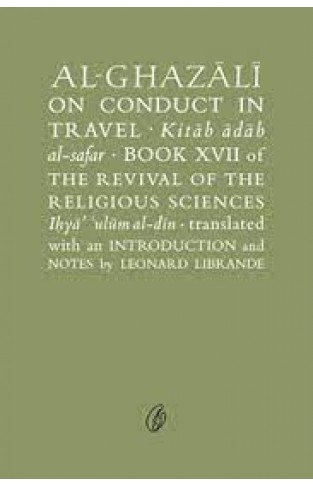
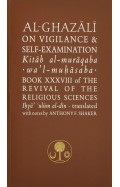


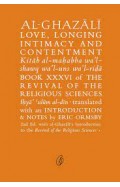

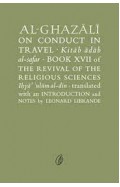
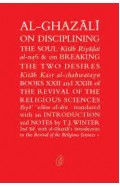

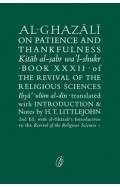
-120x187.jpg?q6)










-120x187.jpg?q6)


-120x187.jpg?q6)


